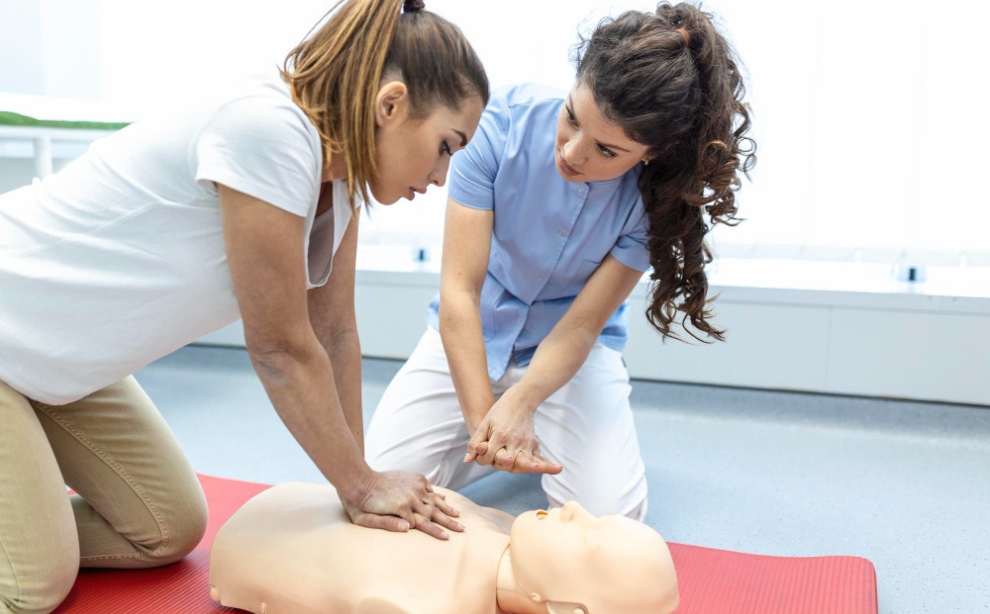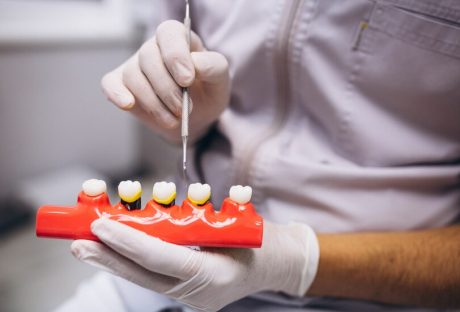Unexpected accidents and injuries might occur, leaving you feeling unprepared and powerless. Having a basic understanding of first-aid procedures might help you deal with emergencies much more effectively. Whether you’re at work, home, or in the wide outdoors, this useful first aid advice will help you act quickly and effectively, perhaps even saving a life.
1. Cuts And Scrapes
Use soap and water to clean the wound carefully. After that, dab on an antibiotic cream and wrap it in a sterile bandage. Remember to watch out for any indications of an infection, such as growing discomfort, redness, or swelling.
2. Burns
Apply cool water to the burned area for ten to twenty minutes if it’s minor. After that, dab on some aloe vera gel or sterile gauze. Severe burns should also be treated medically, as they may need to be handled by professionals.
3. Choking
When someone chokes, the Heimlich maneuver may save their life. Standing by someone suffering in this circumstance is one thing you can do to support them. Then, to free the obstruction restricting their airway, put your arms around their waist and shove inward, right below the ribs.
4. Sprains And Strains
Remember RICE, which stands for Rest, Ice, Compression, and Elevation, to treat sprains and strains immediately. These factors are essential for treating these wounds and avoiding more discomfort. It would be best to refrain from placing any weight on the injured area before using this procedure. To lessen swelling, apply cold packs, compress with a bandage, and keep the affected area elevated.
5. Fractures
If you think you may have a fracture, get medical help right away and immobilize the affected area with a splint or sling. Moving the person should only be done when essential to prevent the injury from worsening.
6. Heart Attacks
Understand the warning indications of a heart attack, which include upper body discomfort, shortness of breath, and chest pain. Make an instant call to emergency services if this occurs. Additionally, to help thin the blood, have the conscious person chew and take aspirin.
7. Strokes
To determine whether someone is having a stroke already, remember the acronym FAST. Face drooping, arm weakness, speech impediment, and time to call emergency assistance are collectively referred to as FAST. In this kind of scenario, time is of the essence in reducing the possible harm that could result from a stroke.
8. Bleeding
Using a clean cloth or bandage, apply direct pressure to the cut and raise the affected region. Seek emergency medical assistance if the bleeding is extreme or doesn’t stop.
9. Allergic Reactions
If an epinephrine auto-injector is available, use it if someone has a severe allergic reaction. In addition, make an emergency aid call and keep an eye on the person’s breathing and level of consciousness.
10. Poisoning
If you suspect poisoning, contact the Poison Control Center right away. Additionally, you have to make an effort to identify the chemical you used and adhere to the advice of professionals.
11. Heat-Related Emergencies
Learn the warning signs and symptoms of heat stroke and exhaustion, particularly in the sweltering summer months. Move the individual with a heatstroke as soon as possible to a cooler location, give them some water, and use a cool compress to bring down their body temperature.
12. Hypothermia And Frostbite
Become familiar with the signs of frostbite and hypothermia, particularly during the winter. Preventing future difficulties can be achieved by learning how to treat frostbite properly or how to gradually warm and rehydrate a person suffering from hypothermia.
13. Seizure Response
One can guarantee the safety of the person experiencing a seizure by knowing how to support them during the event. It would be best if you timed the length of the seizure, cleared the area around them, and cushioned their head as some of the first actions you do.
14. Animal Bites And Stings
By being aware of the proper first aid protocols for various animal bites and stings, one can lessen the likelihood of infection and allergic reactions. It is imperative that wounds be cleaned properly and that medical treatment be sought if necessary. Go for a first aid training to handle situations smartly!
15. Drowning Incidents
Learn the fundamentals of being safe in the water and preventing drowning. Acquiring knowledge of water rescue techniques and fundamental life-saving measures can greatly increase the likelihood of a drowning victim’s successful resuscitation.
Essential Life-Saving Skills To Learn For Emergencies
These two approaches are regarded as the most important to master while learning first aid skills and techniques since they have the potential to save a lot of lives.
CPR (Cardiopulmonary Resuscitation)
When a person has a cardiac emergency, knowing CPR can be quite helpful in preserving their life. Until expert medical assistance arrives, proper chest compressions and rescue breaths can maintain the flow of oxygenated blood to crucial organs.
AED (Automated External Defibrillator) Use
Understanding how to use an AED can significantly increase the chances of survival for someone experiencing sudden cardiac arrest. Many public places, such as schools, airports, and shopping malls, are equipped with AEDs for immediate use.
Important Aspects Of First Aids And Life-Saving Methods
Aside from applying the necessary first aid for any physical injuries, there are also other important aspects to learn as you deal with first aid and various forms of life-saving methods.
Emotional Support
Recognize the significance of providing emotional support to people in distress. Being empathetic, reassuring, and calming can significantly aid the recovery process for those affected by an emergency.
Emergency Preparedness Planning
Encourage the creation of an emergency preparedness plan for households and workplaces. This plan should include vital information, such as emergency contacts, evacuation routes, and the location of first aid kits and AEDs, to ensure swift and organized responses during crises.
Mental Health First Aid
Acknowledge the importance of mental health first aid and the need to understand the signs and symptoms of mental health crises. Encouraging open communication and directing individuals to appropriate professional resources can provide crucial support for those struggling with mental health challenges during stressful situations.
Learn Life-Saving Skills
By having a basic understanding of these first aid tips, you can provide timely assistance during critical situations. Remember, remaining calm and focused is crucial in delivering effective aid. Regularly refreshing your first aid knowledge and attending a certified and cheap first aid course can further boost your confidence in handling emergencies.
Make it a personal responsibility to equip yourself with these must-know first aid skills. Your swift action might be the beacon of hope for someone in distress. Additionally, stay informed, stay prepared, and be the difference when it matters the most.
Read Also:























